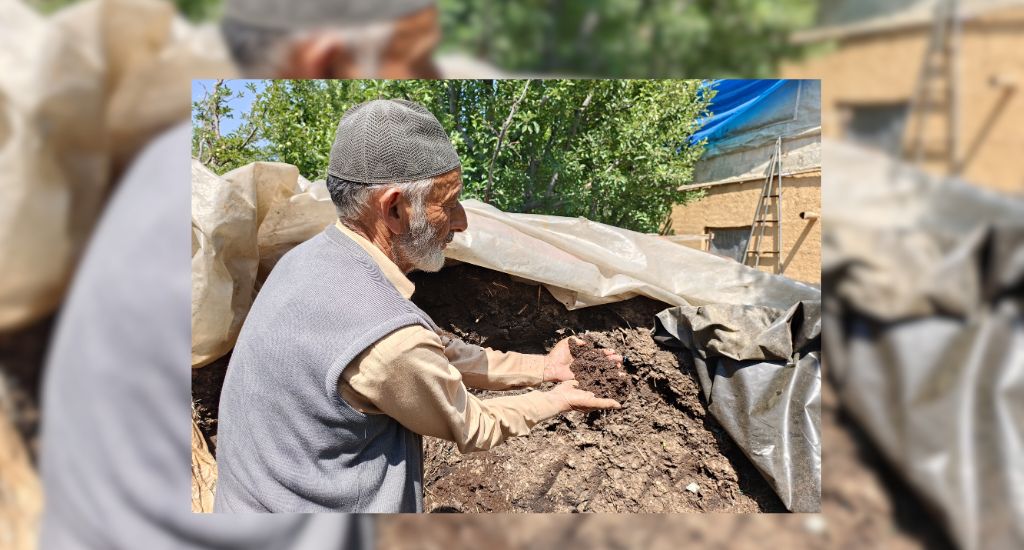
Vermicompost: How earthworms helped this Kashmiri farmer succeed
This 70-year-old farmer in Shopian district of Jammu and Kashmir runs a successful vermicompost organic fertiliser unit from a mud house in his village.

This 70-year-old farmer in Shopian district of Jammu and Kashmir runs a successful vermicompost organic fertiliser unit from a mud house in his village.
Amidst verdant apple orchards of Gagran village, in the picturesque Shopian district of Jammu and Kashmir, stands a two-storey mud house that holds a remarkable tale of sustainability and transformation. This is the vermicomposting unit run by the inspiring 70-year-old Ali Mohammad Mir.
In a world bustling with technological advancements, Mir’s commitment to eco-friendly practices and successful entrepreneurship stands as a beacon of hope.
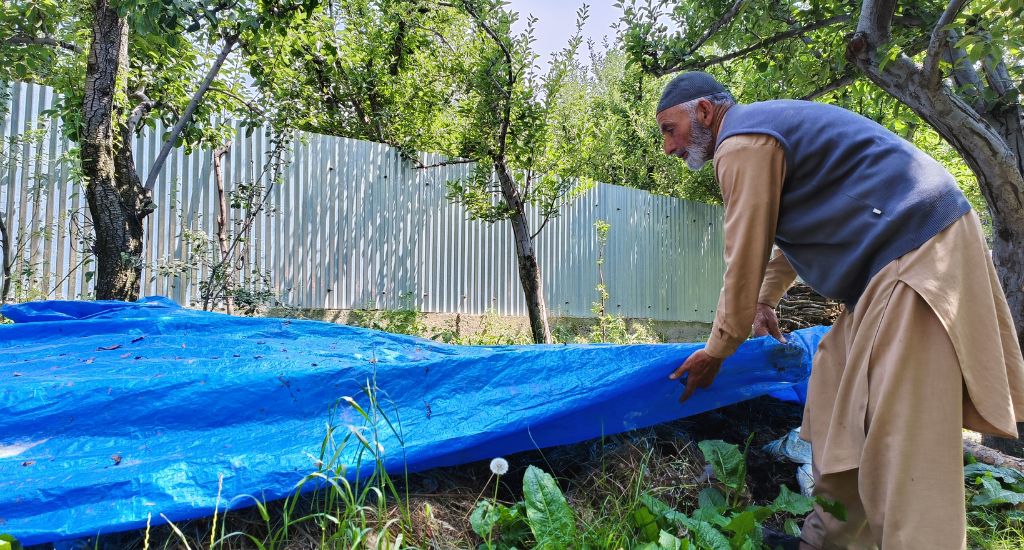
For Mir, venturing into the world of vermicomposting was not a mere coincidence. It was a deliberate choice fuelled by his love for farming. As a child, he was always drawn to agriculture, but he harboured a dream of carving a unique path in the field. Disheartened by the prevalent chemicals-based farming practices, he yearned to find a method that would yield superior farming products.
“The compost has yielded superior outcomes. Not only has it boosted the yield of fruits and vegetables, but it has also enhanced the juiciness, taste and colour of apples,” Mir said.
Mir’s family has a large vegetable farm abutting the apple orchard. He fondly recalls tuning in to Krishi Darshan, an agriculture programme aired on Doordarshan, where he learned new and advanced farming tactics. Intrigued by the potential of agriculture in Kashmir, Mir sought to introduce a novel concept to the region.
Also Read | Kashmir’s farmers switch from growing apples to exotic greens
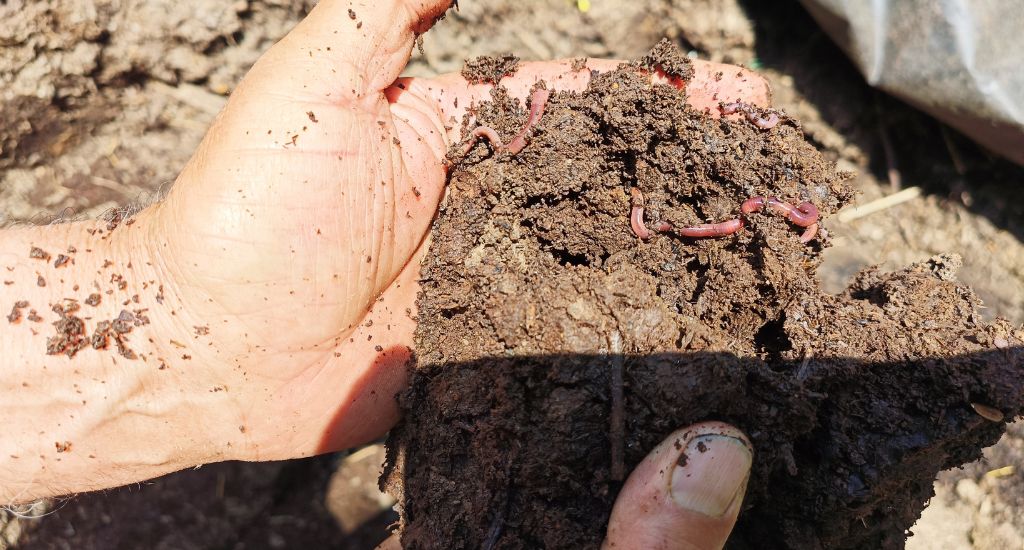
In 2005, driven by his vision, Mir approached the government agriculture department and applied for a loan to set up a vermicomposting unit. With a loan of Rs 30,000 and comprehensive training, he embarked on his journey. He transformed a portion of his land into a thriving vermicomposting farm, where a two-storey mud house now stands tall.
Mir’s vermicomposting practice not only enriched the soil of his own orchard and vegetable garden but also brought about a sustainable source of income for himself. Recognising the demand for organic compost, he began marketing the organic manure to local nurseries, farmers and gardening enthusiasts. Soon enough, his nutrient-rich compost, called Kissan Vermicompost Organic Fertilizer, became sought after in the area.
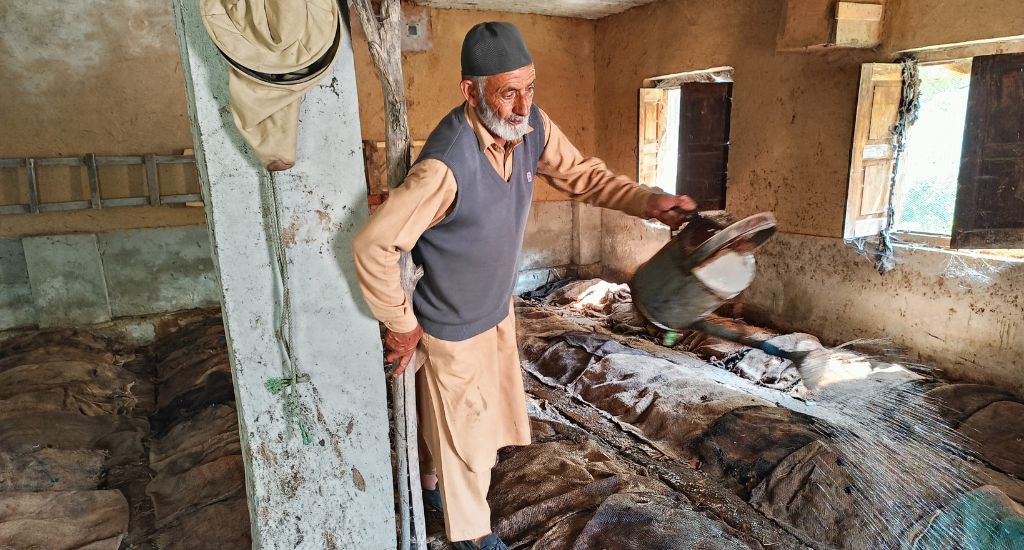
Today, Mir produces around 300 quintals of his vermicompost each year, divided into three cycles. However, he often finds himself unable to meet the ever-increasing requests from eager customers. Mir employs two persons, and earns a profit of around Rs 25,000 per month. He also uses his own farm’s vermicompost in his apple orchard and vegetable gardens.
“I am happy with whatever I earn from this vermicompost unit,” Mir said.
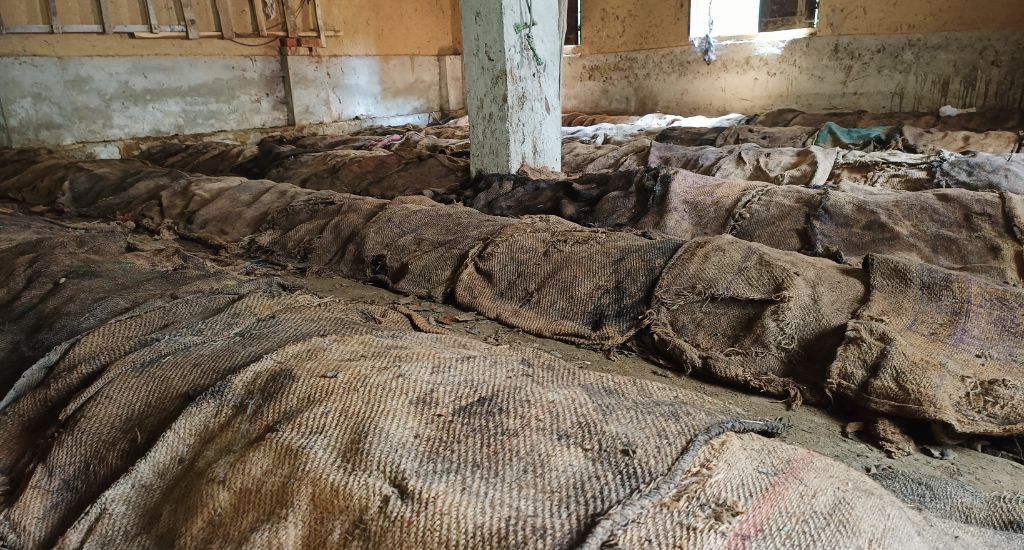
Kashmir heavily relies on agriculture as its economic mainstay, with 70 percent of its workforce directly or indirectly linked to the sector. In the 2022-2023 financial year, over 3 lakh hectares of land was dedicated to fruit production, while vegetables were grown in 60,000 hectares.
Vermicomposting is a sustainable and efficient method of recycling organic waste and producing nutrient-rich compost in a small space. This compost improves soil fertility, stimulates root growth and overall enhances plant health while reducing the risk of diseases and pests, Mir said.
Also Read | Turning Kashmir’s potatoes into popular chips
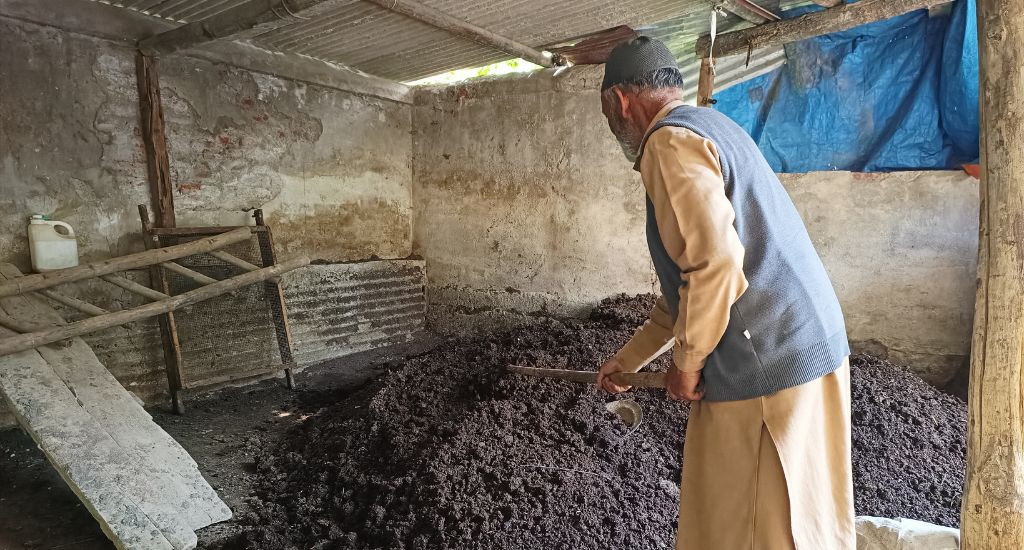
The process involves using worms to decompose organic materials, breaking them down into simpler compounds teeming with nutrients and beneficial microorganisms. It is necessary to check and adjust the moisture level and temperature. The worms thrive in a moist environment, with temperatures ranging from 15 to 25 degrees Celsius.
Mir’s vermicompost production runs from March to October, taking a hiatus during the winter period. Cow dung, grass and plant leaves serve as the raw materials for his vermicomposting farm. Earthworms, purchased from the government agriculture department, play a crucial role in this sustainable cycle of recycling organic waste.
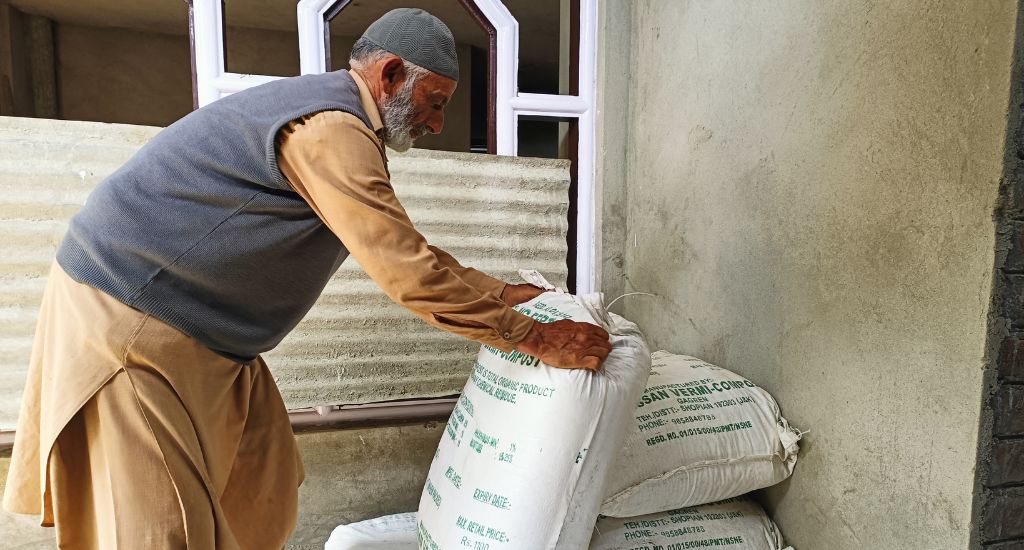
Now, Mir also aids those who wish to venture into vermicomposting. His knowledge and experiences inspire them to embrace eco-friendly practices and create a greener, healthier world.
Also Read | Kashmir’s walnut wonders
The lead image at the top shows Ali Mohammad Mir showing decomposed raw material (Photo by Aamir Ali Bhat)
Aamir Ali Bhat is a Kashmir-based journalist and independent researcher whose work has been published in several reputable news outlets and publications.